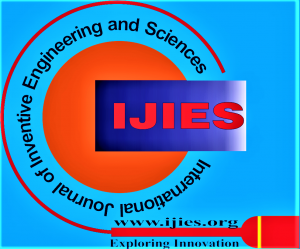![]()
Smart City Development: Analyzing the Feasibility of Smart Water Supply Systems in Qazvin
Mahmoud Taheri1, Navid Saeedi Rezvani2, Ramadan Ali Shormij3
1Mahmoud Taheri, Department of Urban Planning, Qazvin Branch, Islamic Azad University, Qazvin, Iran.
2Navid Saeedi Rezvani, Department of Urban Planning, Qazvin Branch, Islamic Azad University, Qazvin, Iran.
3Ramadan Ali Shormij, Department of Urban Planning, Qazvin Branch, Islamic Azad University, Qazvin, Iran.
Manuscript received on 17 February 2025 | First Revised Manuscript received on 19 February 2025 | Second Revised Manuscript received on 23 March 2025 | Manuscript Accepted on 15 April 2025 | Manuscript published on 30 April 2025 | PP: 15-19 | Volume-12 Issue-4, April 2025 | Retrieval Number: 100.1/ijies.D106914040325 | DOI: 10.35940/ijies.D1069.12040425
Open Access | Editorial and Publishing Policies | Cite | Zenodo | OJS | Indexing and Abstracting
© The Authors. Blue Eyes Intelligence Engineering and Sciences Publication (BEIESP). This is an open access article under the CC-BY-NC-ND license (http://creativecommons.org/licenses/by-nc-nd/4.0/)
Abstract: This study investigates the feasibility of implementing smart water supply systems as part of the broader smart city initiative in Qazvin, Iran. The research aims to analyze the relationship between smart water supply systems and urban smartness, focusing on the potential benefits and challenges associated with their integration. Utilizing a mixed-methods approach, the study combines qualitative interviews with experts in urban planning and quantitative surveys targeting municipal managers and water supply authorities. The findings reveal that smart water supply systems can significantly enhance urban infrastructure by improving water management efficiency, reducing waste, and increasing citizen engagement. However, challenges such as financial constraints, lack of technical expertise, and insufficient regulatory frameworks hinder the successful implementation of these systems. The study concludes that while the potential for smart water supply systems in Qazvin is promising, strategic planning, investment in technology, and stakeholder collaboration are essential for overcoming existing barriers. This research contributes to the growing body of literature on smart cities and offers practical insights for policymakers and urban planners aiming to foster sustainable urban development through innovative water management solutions.
Keywords: Smart City, Water Supply System, Qazvin, Technology Integration, Urban Development.
Scope of the Article:
